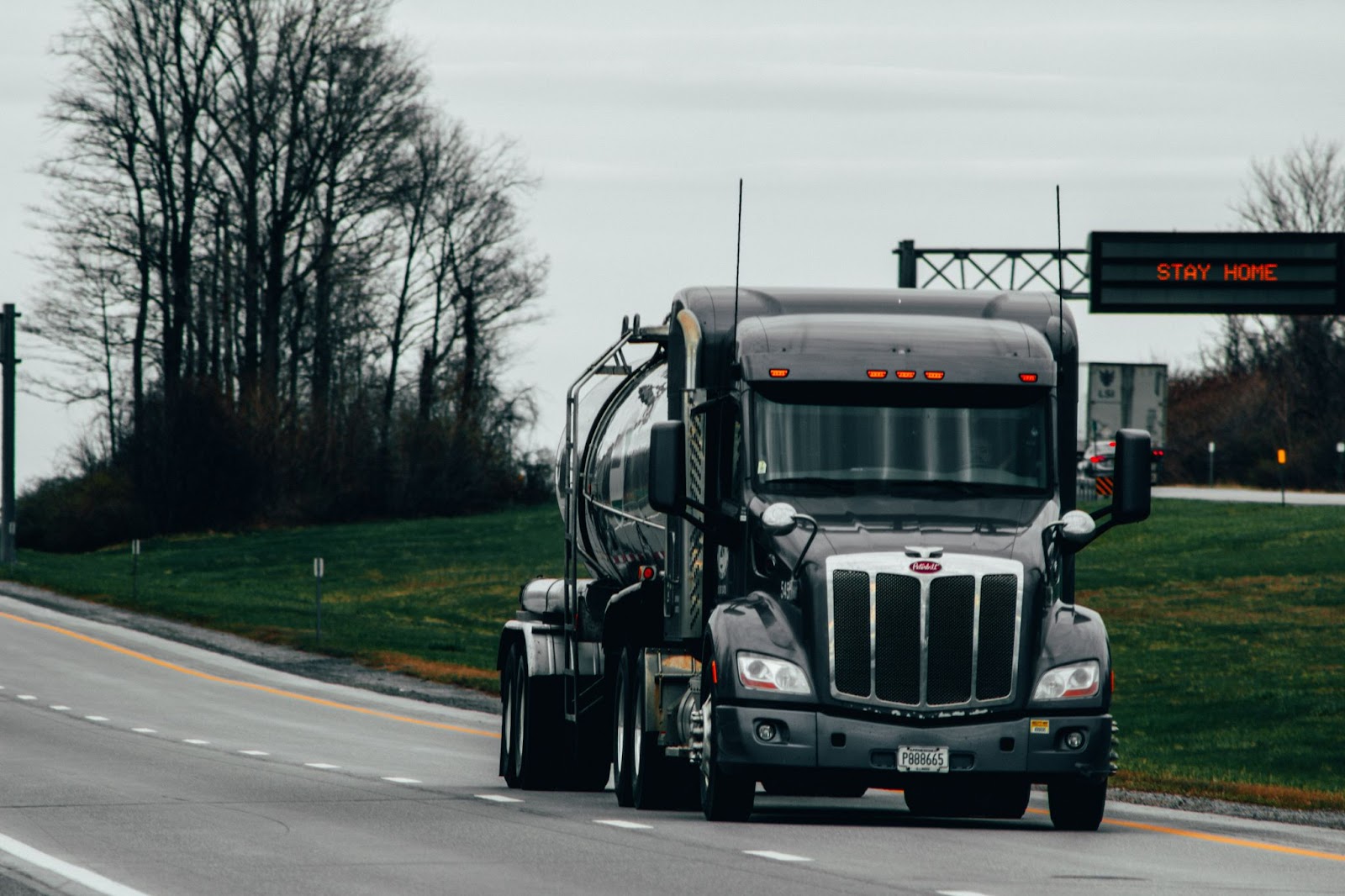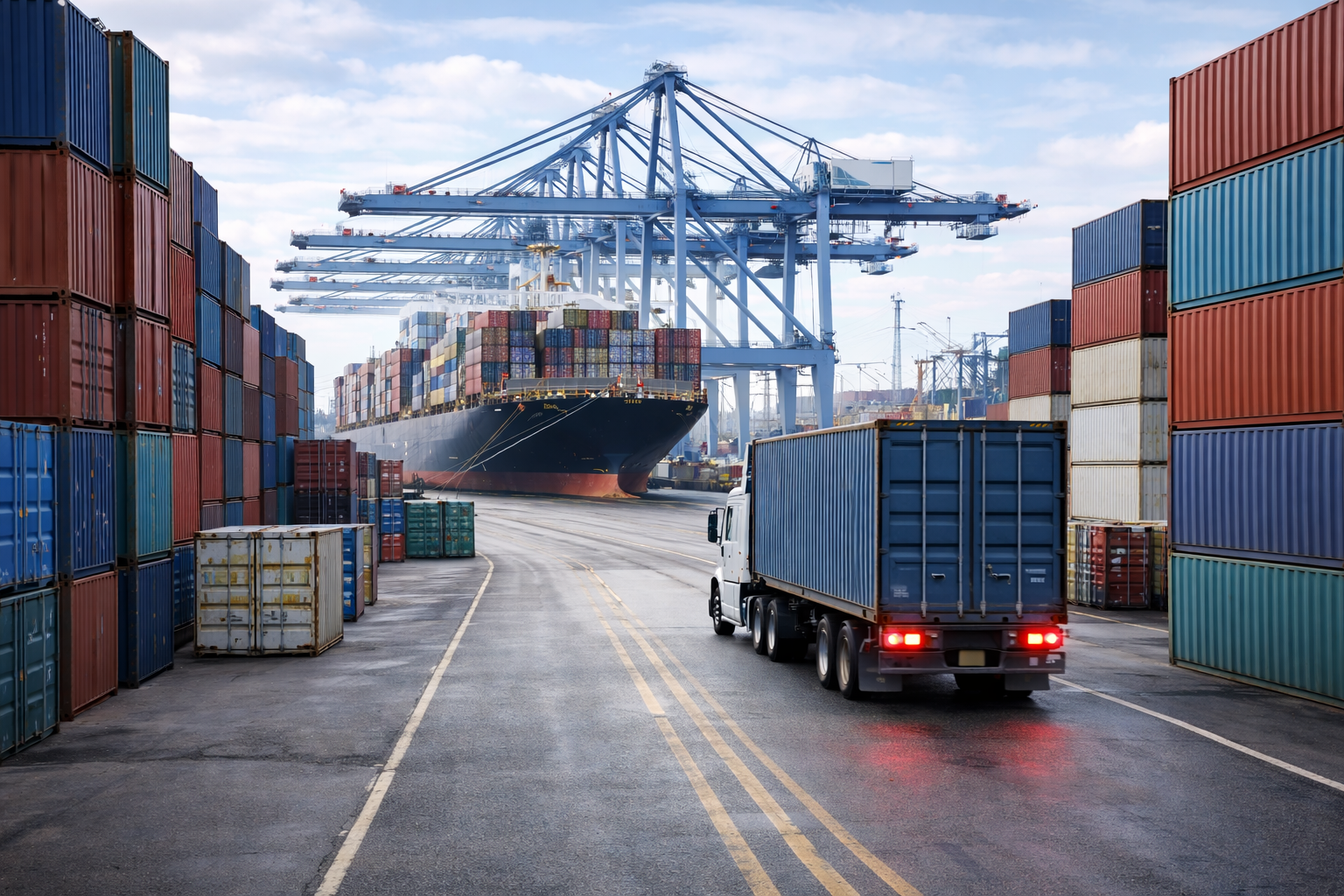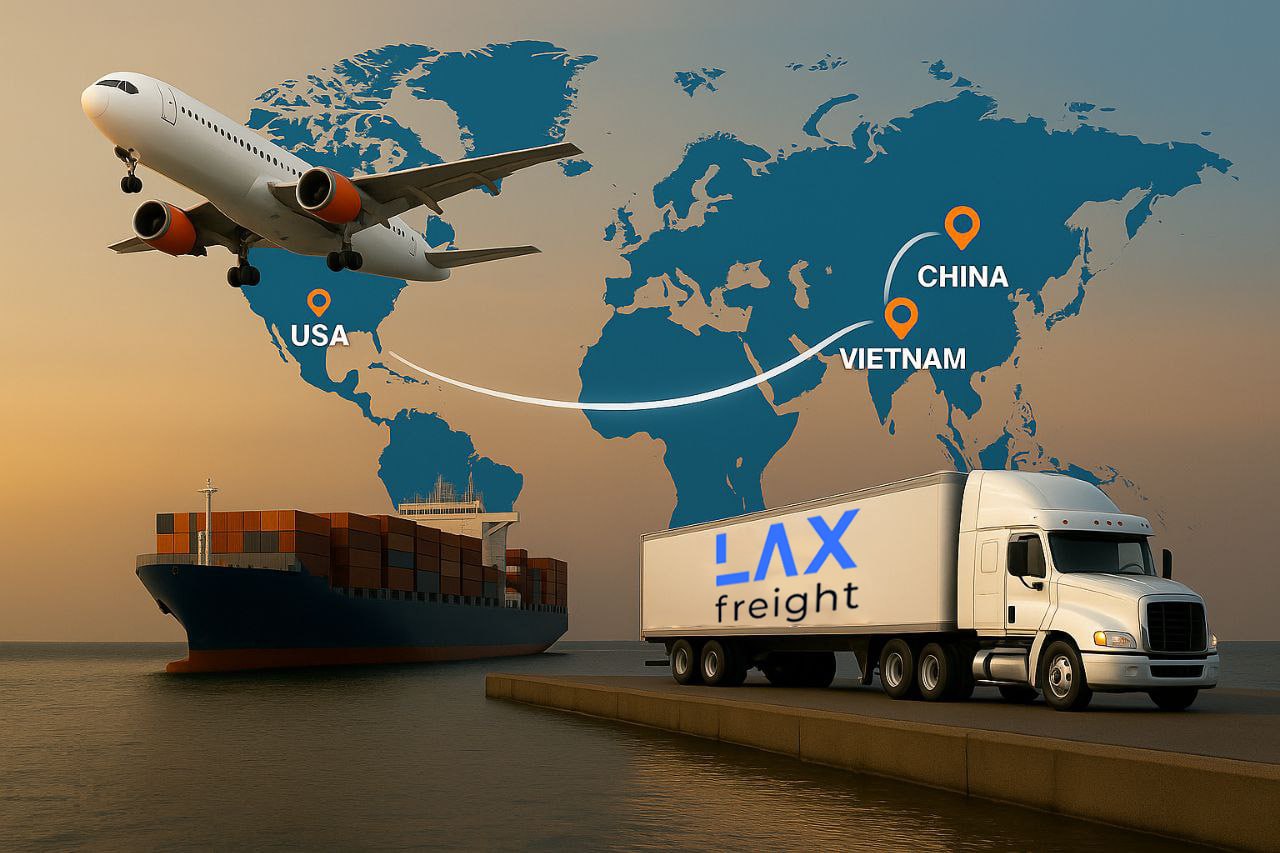The main aspects of the logistics industry are transparency and trust. The unethical practices can disrupt the supply chain and provoke financial losses, delivery delays, and cargo damage. One such practice is double brokering.
We delve into what double brokering is, its examples, instruments to reduce its risk, and how to report such accidents.
What is Double Brokering?
According to the Department of Transportation, double brokering is an illegal deal that involves two or more licenses. Specifically, a freight broker accepts a load from a shipper and re-brokers it to another carrier or broker without notifying a shipper. This practice disrupts the supply chain and responsibility crucial for efficient and reliable delivery. It also leads to delays, lower cargo safety, and financial disputes.
Double brokering in trucking often involves a middleman who hides the true carrier and the shipper from each other. The initial broker might pose as a legitimate carrier to obtain the order. Then, they reassign the load to an actual carrier, having a part of the payment. The shipper is unaware of it, leading to accountability and insurance coverage issues.
This act is unethical and illegal in many jurisdictions as it harms the trust and integrity of the trucking sector, leading to cargo damage, payments, and increased costs for shippers. It also may damage the reputation of carriers involved in this scheme.
Understanding and identifying double brokering is important for all parties in the delivery process. It helps them to protect themselves from fraud and ensure efficient logistics processes.
What is an example of double brokering?
We provide a practical scenario for a better understanding of double brokering in practice.
A shipper needs to transport its freight from Chicago to Los Angeles. They contracted Freight Broker 1 to manage the logistics process. The broker agrees to handle the delivery for $4,000 and says they’ll hire a trusted carrier.
Still, they re-broker the shipment to Freight Broker 2 without notifying the shipper. Freight Broker 2 finds the Carrier who agrees to transport the cargo for $2,000. Freight Brokers retain a portion of the fee, pocketing the difference.
The Car Shipper and the Carrier might not be aware of a double brokering scheme. The Carrier completes the delivery to Las Angeles but then faces challenges as the Freight Broker 2 delays the payments.
This scheme can lead to the following issues:
- Payment. The Carrier may struggle to receive payment for the delivery.
- Insurance. If the shipment is damaged or lost, liability determination will be complex. Insurance claims can be denied as the Carrier wasn’t a part of the original contract.
- Trust and reliability. The Shipper was compromised due to a double brokering scheme. If the carrier is unreliable, they might face delivery delays or total loss of goods.
- Legal penalties. Both brokers can face legal consequences for engaging in fraudulent practices. It leads to penalties and fines.
Is Double Brokering Illegal in The US?
Double brokering in trucking is an illegal act in the US. The Federal Motor Carrier Safety Administration (FMCSA) and the DOT have set strict regulations to combat this practice. The rules aim to maintain transparency, accountability, and trust within the sector. Specifically, brokers are obliged to have a valid FMCSA license to ensure disclosure of all parties involved in the supply process. Failure of this rule results in penalties, fines, and license suspension.
Recently, the Moving Ahead for Progress in the 21st Century Act tightened the regulations for brokers. It includes the requirement raise from $10,000 to $75,000. Brokers must provide this amount to verify they have the financial resources to pay carriers and shippers.
In addition to federal regulations, many states have their laws and regulations to prevent double brokering practices. Violating the rules will lead to further legal penalties at the state level. Specifically, the consequences may include:
- Fines. Financial penalties can be imposed for each case of double brokering.
- License suspension. The FMCSA may revoke or suspend the license that leads to potential business closure.
- Lawsuits. Shippers and carriers face double brokering may file lawsuits to seek compensation for financial losses or cargo damages.
- Criminal charges. In severe cases of double brokering, it can lead to criminal charges.
To avoid double brokering, shippers and carriers should perform thorough checks. This includes verifying a broker’s credentials, checking their FMCSA license, and reviewing their business history. With these measures, shippers and carriers can maintain the integrity of the logistics and ensure protection from fraud.
What Does the FMCSA Say About It?
The FMCSA maintains a clear position against double brokering. The regulatory body aims to ensure the safety and integrity of the freight delivery. The FMCSA position can be presented as follows:
- Transparency and accountability. The FMCSA requires all brokers to ensure transparency and accountability of their operations. Brokers should have a valid operational license and comply with industry regulations. In addition, brokers must disclose all parties involved in the shipping process. This helps prevent the concealment of double brokerage, ensuring shippers are informed of the carrier’s identity. Such transparency is crucial for ensuring trust and safety in the transportation process.
- Licensing requirements. For legal operations, brokers must have an FMCSA license. This ensures that brokers meet industry requirements and are allowed to arrange deliveries. They must also provide a $75,000 bond or trust fund agreement to ensure they have the resources to pay carriers and shippers.
- Unauthorized re-brokering prohibition. The FMCSA requires to notify a shipper in case of re-brokerage. It prevents the unauthorized transfer of shipping contracts to other brokers or carriers. Brokers must ensure that re-brokering is disclosed and agreed upon by all parties. Unauthorized re-brokering can lead to misunderstandings and communication breakdowns.
- Enforcement and penalties. The FMCSA sets penalties for double brokering, such as fines, penalties, or operations revoking or suspension. The agency also conducts investigations and audits to identify non-compliant brokers. These regulations prevent fraud and help ensure healthy and stable trucking operations.
- Reporting. The FMCSA encourages every industry representative to report any suspicious activities, such as double brokering. The agency established channels for reporting violations, and those who report are protected under the law. The FMCSA seeks to identify and address double brokering practices more effectively. Such an approach allows swift action against violators and helps protect the interests of legitimate industry players.
- Penalty for Double Brokering. The participants in double brokering can result in a range of penalties. The FMCSA and some regulatory bodies implement strict measures to identify and penalize fraud. It covers all the parties involved in double brokering.
- Financial penalties. The FMCSA imposes fines in case of double brokering. They can range from thousands to tens of thousands of dollars per violation that depends of the severity and offense frequency. The fines are projected to be deterred, increasing the cost of double brokering.
- License suspension or revocation. Brokers guilty of double brokering can face a suspended or revoked FMCSA license. It means they can no longer continue their operations. It’s the most severe penalty and serves as a powerful incentive to adhere to regulations.
- Legal consequences. In addition to fines and license revocation, violators may also face civil and criminal charges. Those affected by double brokering can file lawsuits seeking compensation for damage. In severe cases, it may include criminal charges.
- Reputation impact. Being guilty of double brokering can damage a broker’s reputation. In the freight industry, once a broker is known to engage in illegal practices, it can be challenging to regain the sector’s trust.
- Insurance complications. Insurance companies may deny to provide services for claims involving double brokering. Liability determination will be complicated if a cargo is damaged, lost, or stolen.
- Increased monitoring. Brokers engaged in double brokering may be subject to increased scrutiny by the authorities. The FMCSA and other bodies may conduct frequent audits and inspections. Sch oversight can be time-consuming and lead to increased costs for brokers.
How Can You Spot Double Brokering?
Identifying double brokering requires knowing the several warning signs and practices to protect from fraud. With due diligence, shippers and carriers can minimize risk of double brokering. The possible precautions include:
- Broker verification. Shippers and carriers should verify the broker’s credentials. It foresees checking their operation status through the FMCSA’s website and verifying their license. Also, it’s important to confirm their insurance information.
- Monitor load posting. Pay attention to how frequently a broker posts updates on freight boards. A high volume of loads without a sufficient level of carrier activity may mean double brokering activities.
- Check broker and carrier reviews. Before contracting a broker, you should look for feedback on them from the industry representatives. Negative reviews or complaints on payments can be worrying signals. DAT or Truckstop.com have review sections where you can see the experience of other industry representatives.
- Contact information. If a broker doesn’t want to provide direct contact information for the carrier, it may be a sign of double brokering.
- Documentation request. To verify a broker’s reliability, you can use detailed documentation on the shipment, such as bills of lading, carrier contracts, and insurance certificates. Double brokering often involves forged or incomplete documents.
- Due diligence on new partners. Before contracting new brokers or carriers, perform diligence. It includes background checks, financial assessments, and verifying their business history.
- Detect payment irregularities. Ddouble brokers often delay payments or offer too good terms, such as higher rates. They may also demand upfront payment with no justification.
- Verify load assignments. Validate that the carrier handling the load is assigned by the broker. To do so, you can detect the carrier’s identification and verify these details with the broker.
How to Report Double Brokering?
Identifying and reporting double brokering is essential to maintain a healthy and stable transportation market. Reporting suspicious activities can help prevent fraudulent practices and protect other industry representatives.
- Provide evidence. Before reporting double brokering, gather all possible evidence that supports your suspicion. It may include agreement copies, communication records, bills of lading and other shipping documents, and payment records.
- Identify authority to address. Determine the appropriate body to report the incident. The FMCSA regulates brokers and carriers and has procedures to handle complaints. Each state has its regulatory body for the transportation sector. In addition, you may report to organizations like the Transportation Intermediaries Association (TIA).
- File c a compliant. Every organ has a specific process for filing complaints. For example, to address the FMCSA, you should submit a complaint through the online platform on the website. Attach any supporting documents and evidence.
- Contact regulatory bodies. If the incident involves state regulations, contact the relevant agency. Provide the same evidence and information so they can start their investigation process.
- Cooperation with industry associations. Such associations as the TIS can support and take action against members who engage in double brokering.
- Notify insurance companies. If an insurance claim is involved in a double brokering scheme, notify your insurance company. Provide them with the necessary evidence and documentation.
- Inform the industry. Many freight and logistics platforms have an experience and feedback section. Use it to report and inform other industry representatives of double brokering cases.
- Follow up. After the report is filled, follow up to ensure your complaint is addressed. Keep track of any responses or actions.
- Maintain records. Keep records of all communications, reports, and evidence of the double brokering incident.
Conclusion
Double brokering poses significant risks to the logistics industry. Understanding what double brokering is, knowing the warning signs, and how to report double brokering can help you protect your operations and contribute to a more transparent market. Diligence and reporting are essential steps in combating the fraud.To ensure the reliability and transparency of the delivery process, you should choose partners with trusted services. LAX Freight can help you protect shipments, maintain smooth operations, and support overall integrity.



